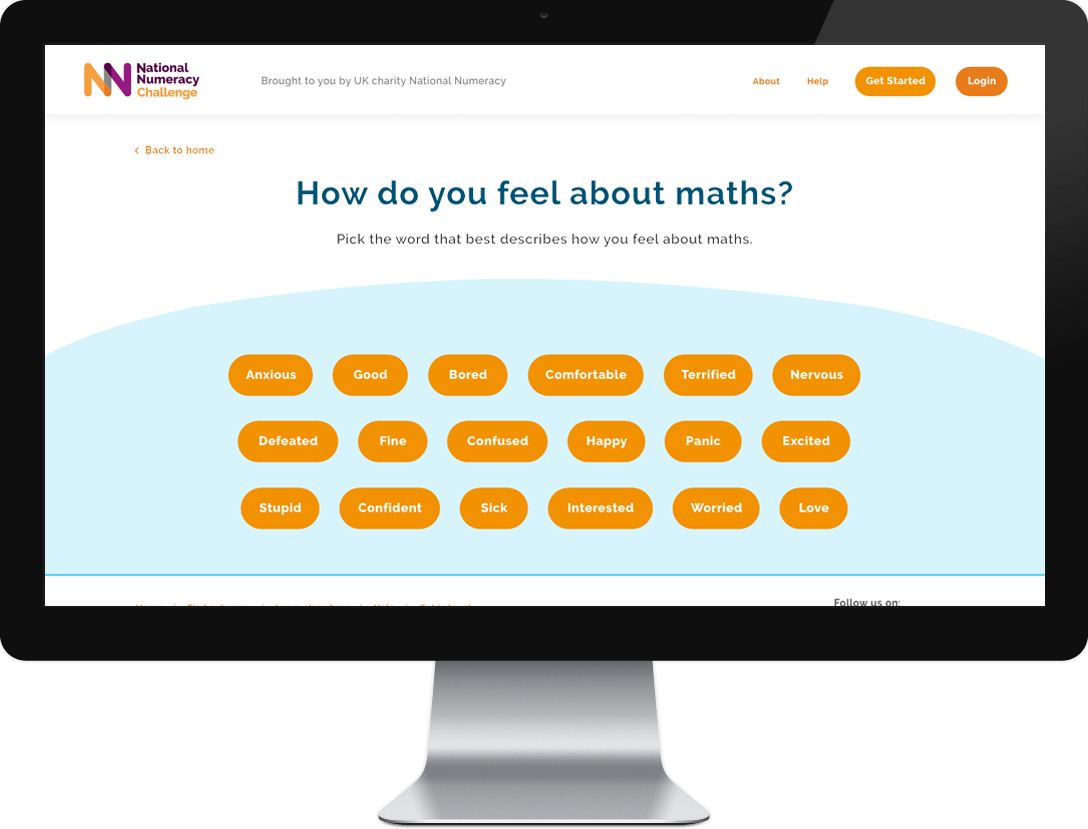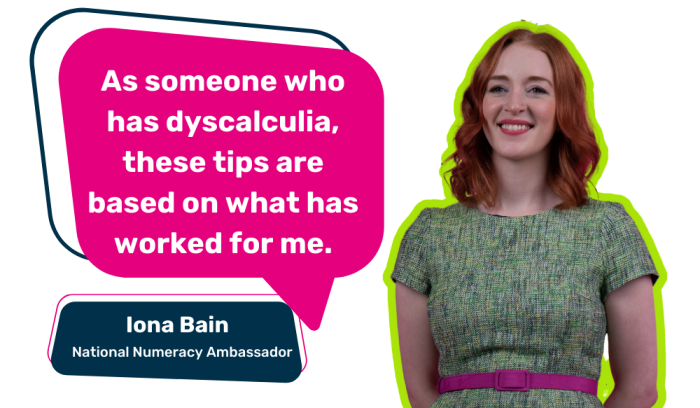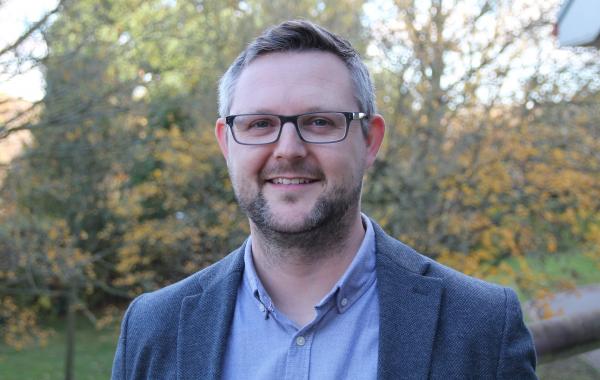What is dyscalculia?
Dyscalculia is an unexpected and persistent learning difficulty that makes it hard to understand, learn, or use maths. Often described as “dyslexia with numbers” or "number dyslexia" – it is much less well-known than dyslexia.
Adults living with dyscalculia
In these conversations, Peter Cherry from the Dyscalculia Network, Rose Benson a BBC Young Reporter competition winner, and Jane McFadyen - a usability expert who has dyscalculia - talk about how this learning difficulty impacts their lives.
Iona Bain's tips for feeling better about numbers
Iona Bain is a National Numeracy ambassador and BBC Morning Live's money expert. Iona has dyscalculia and shares some tips for feeling better about numbers if you, or your child, has dyscalculia, sometimes called 'number dyslexia'.
Watch Iona's video and take a look at her tip sheet. Her advice may be useful even if you don't have a dyscalculia diagnosis...
Maths teacher Belinda has dyscalculia. Find out how she went from loathing maths to loving it...
"Building your confidence with numbers equals building confidence for yourself and within yourself. It’s not nice and it’s no way for anyone to live to have to go around fearing something or finding something daunting, and maybe not being able to have a career in a job they want because they haven’t done an exam they need."
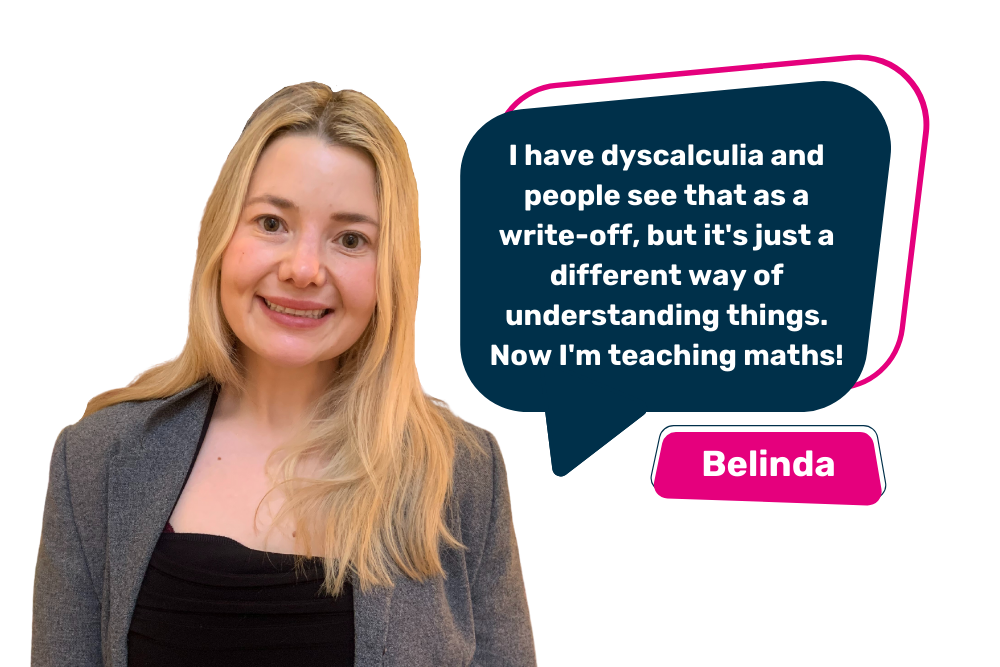
What is dyscalculia and how does it affect daily life?
Dyscalculia is an unexpected and persistent learning difficulty that makes it hard to understand, learn, or use maths. Although it is often described as “dyslexia with numbers”, it is much less well-known and less researched than dyslexia. It is estimated that dyscalculia affects around 4 million people in the UK - 6% of the population.
What are the signs of dyscalculia?
Dyscalculia makes learning arithmetic much more difficult. There may be difficulties in:
- recognising numbers,
- connecting number symbols and words,
- placing things in order,
- learning sequences,
- grasping the properties of numbers (such as that knowing ‘9’ is nine ‘1’s, but also that it is three ‘3’s),
- counting backwards,
- estimating,
- understanding place value (such as the difference between £500 and £5.00),
- doubling and halving.
How does dyscalculia affect your life?
Dyscalculia can slow down academic progress and career progression, and may cause strong anxiety about maths. Day-to-day effects may include trouble with:
- recalling PIN or telephone numbers,
- matching a number of objects to a number symbol or word,
- managing time,
- planning journeys,
- choosing the right notes or coins to pay with,
- following directions,
- reading a clockface,
- driving at the right speed,
- telling if one amount is greater than another,
- using multiplication or division,
- understanding distances.
Is there such thing as "number dyslexia"?
Dyscalculia is often described as "number dyslexia", but it is a separate learning difficulty with its own distinct features.
Dyslexia affects reading, writing and spelling whereas dyscalculia is concerned with the use of numbers and is much less well-known and less researched than dyslexia. In fact, it is estimated that understanding of dyscalculia is decades behind that of dyslexia.
However, Iona Bain says it can be helpful to describe dyscalculia in this way, "in so far as it conveys how it is not about people being lazy or stupid.
"You would never describe someone who has dyslexia as being either lazy or stupid, you would understand that their brains just do not process words and letters in the same way that everybody else’s does.
“It’s really important that we don’t stigmatise people, also that we don’t make out that they are completely incapable of doing any kind of maths, or that they will never be able to handle numbers.
“Just as someone with dyslexia can read, speak and deal with language and get through everyday life, it’s not like it’s completely debilitating, and it’s the same with dyscalculia.”
As a child, Mark was advised to avoid maths - but now he's helping others with their number confidence. Find out how...
"Numbers never leave you – whether you’re fixing a shelf, looking after your family or lifelong learning – we all have to do it. I buried my head in the sand for 30 years or more, but problem-solving and learning are possible and I’m now a coaching manager at City Gateway."
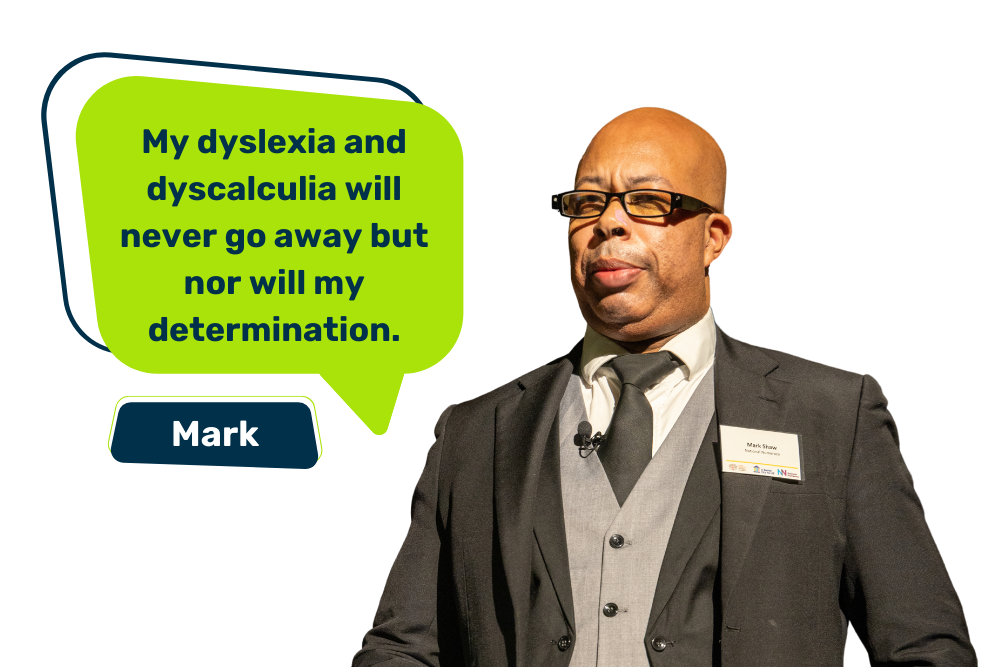
Do I have dyscalculia and can I still get better at maths?
How can you find out if you have dyscalculia, vs. having a lack of confidence with numbers?
We are all on a spectrum of confidence and ease with maths and many people who do not have a learning difficulty do find it difficult to learn maths.
Many adults lack confidence with numbers, find maths hard, or have ‘maths anxiety’ which can get in the way of dealing with numbers and data in daily life – causing similar effects to dyscalculia.
Information and support are available from The Dyscalculia Network. You can arrange to be assessed for dyscalculia by contacting the Helpline at the British Dyslexia Association.
With thanks to Clare Trott, Brian Butterworth, Steve Chinn & Brenda Ferrie at the British Dyslexia Association.
Can you improve your maths if you have dyscalculia?
Yes! Whether you have dyscalculia, maths anxiety, lack confidence with maths, or just know that you could do with brushing up your skills, you CAN improve as an adult.
Improvement may be slower, and specialist support may be needed from tutors who understand different ways of learning, but however you currently feel about maths – you CAN improve.
The National Numeracy Challenge is a great place to do this. It can be used by learners at any skill level and is aimed at those with low number confidence.
University student Stella has dyscalculia. Find out how she went from fearing maths to facing it...
"I’m hoping that one day someone will stumble across the website, relate to my story, and see that there is hope when it comes to number confidence. It can be really difficult, because not everyone has the money to invest in getting a diagnosis, or a tutor. But I hope that someday someone who has dyscalculia will think, 'Let’s try again.'"
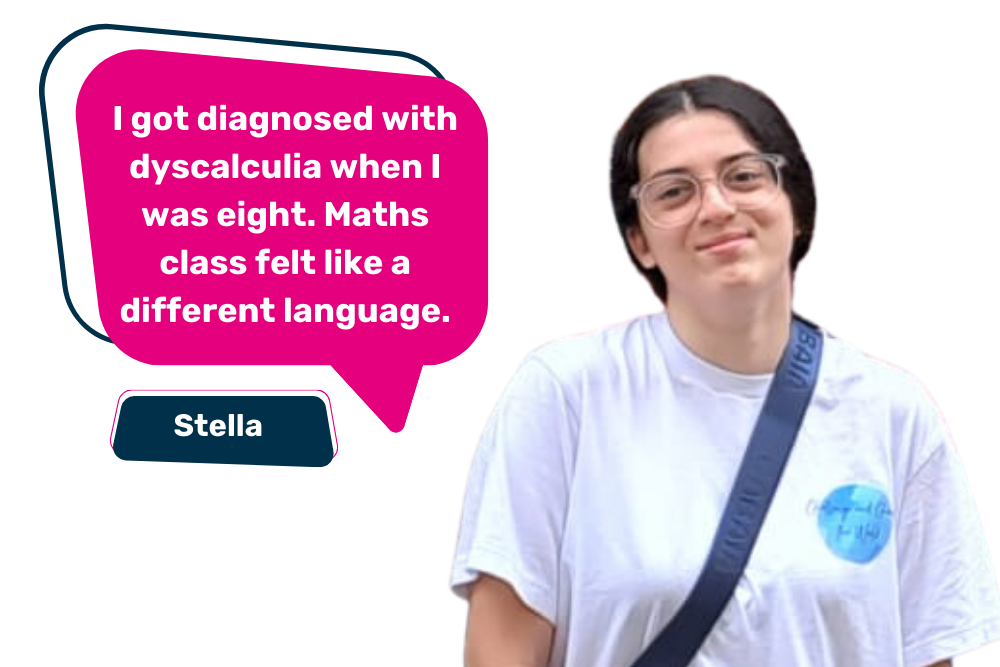
Dyscalculia in the news
National Numeracy's work around dyscalculia regularly features in the media. Here is a selection of recent articles.
Dyscalculia: Do Rishi Sunak's maths plans add up for everyone?
National Numeracy contributes to a BBC article exploring the Prime Minister's plans for maths education
What is dyscalculia? Why a blind spot for maths can be as problematic as dyslexia and the disability explained
National Numeracy contributes to an article exploring dyscalculia in the i paper.
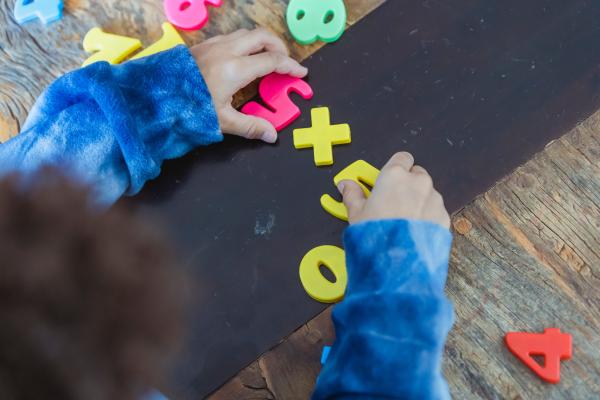
‘I’m a financial commentator and struggle with number dyslexia – here’s how I budget my money’
National Numeracy Ambassador Iona Bain writes about how she handles money during Number Confidence Week 2022, in the i paper.

Try building your confidence in your own time, at your own pace
The National Numeracy Challenge is a place where you can check your skills and build your confidence with numbers, for free. It’s already helped thousands of people who thought they couldn’t improve.
It’s not designed as a way to identify dyscalculia, but it is designed for all ability levels, and to help you identify and improve the skills you need to work on. It also focuses on the maths we need in daily life, and not on the abstract maths we were often taught at school.
Why not give it a go?
